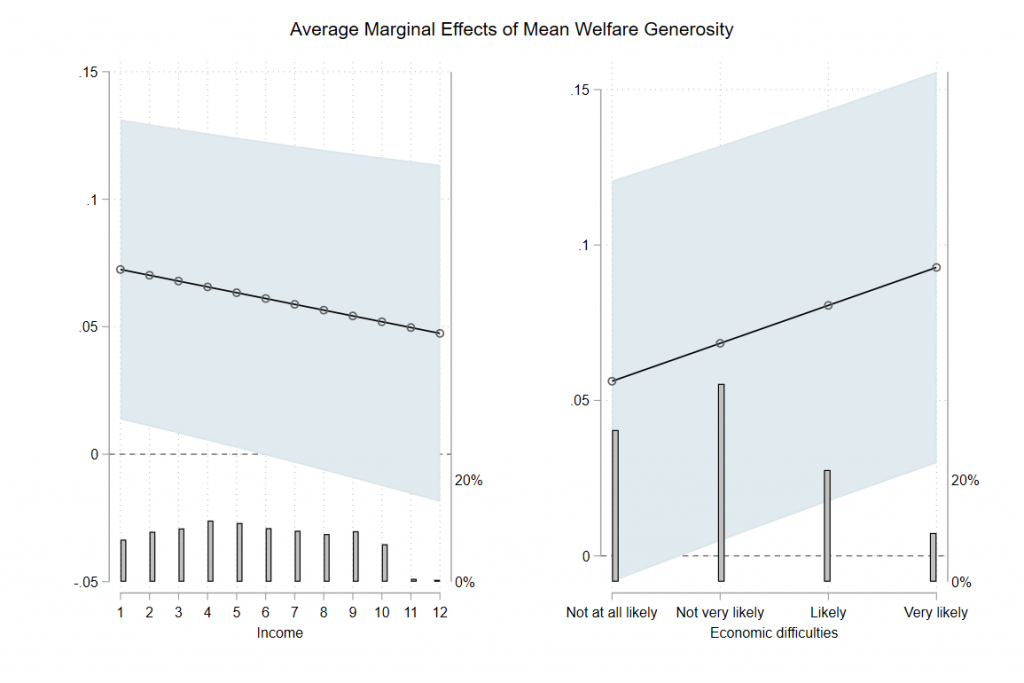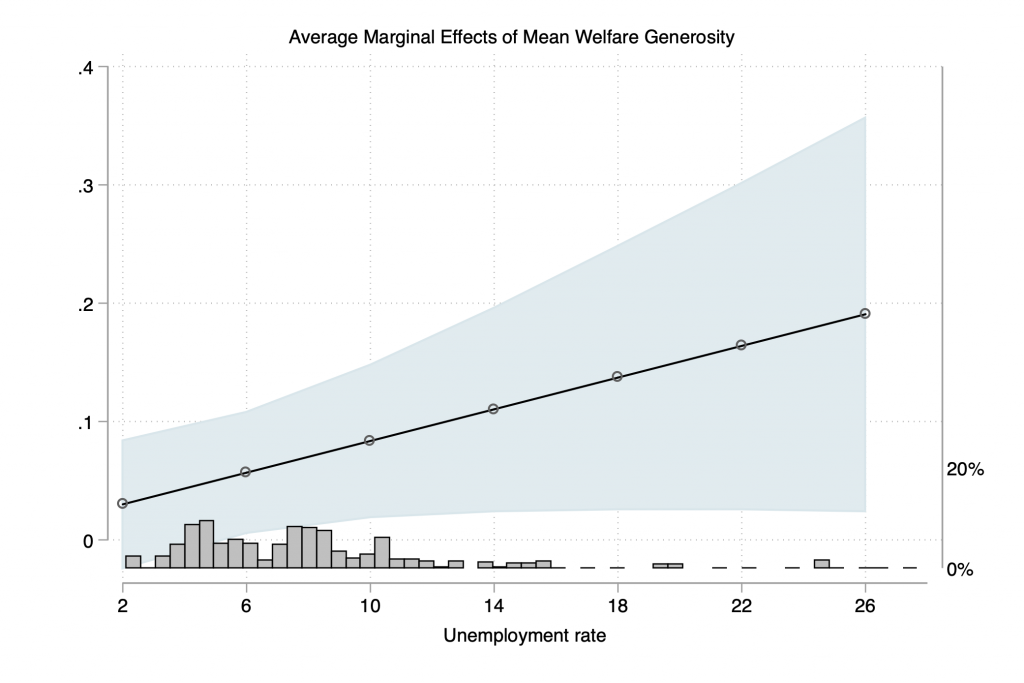Social policies shape public opinions on immigration. A study by Alina Vrânceanu and Bilyana Petrova shows that in Western Europe, generous welfare systems – perhaps counterintuitively – make natives more favourably inclined toward immigrants. Cutting benefits risks exacerbating anti-immigrant sentiment. These research findings have important implications for social conflict in modern capitalist democracies
Recent decades have brought about rising immigration, stringent economic constraints, and deepening welfare retrenchment. A rich literature has explored the implications of immigration on popular support for economic redistribution. But fewer studies have examined the impact of welfare state dynamics on natives’ views of newcomers. This is surprising given the politicisation of immigration and welfare-state reforms which came after the Great Recession, the European sovereign debt crisis, and the late 2000s / mid-2010s European refugee crisis.
In a recently published article, we analyse how the structure of a country’s welfare state shapes mass favourability toward immigration. Building on existing scholarship, we argue that generous welfare systems result in more positive immigration attitudes. This is the result of two different mechanisms.
A values-based perspective posits that different institutional designs promote distinct logics of inclusiveness. These, in turn, differentially shape how natives view newcomers. In particular, restrictive, means-tested policies tend to create stark divisions between beneficiaries and non-beneficiaries. This reinforces a process of social categorisation into in-groups and out-groups.
Means-tested welfare policies tend to create stark divisions, reinforcing social categorisation into in-groups and out-groups
By activating this type of thinking, less generous welfare systems may induce natives to hold less favourable views about immigrants. In contrast, universal systems tend to promote solidarity. As they de-emphasise social categorisations, they foster more tolerant out-group attitudes.
The second mechanism highlights the instrumental role of the welfare state in shielding citizens from socio-economic risk. Less generous systems often prove unable to successfully address socio-economic needs and mitigate status anxiety. Facing heightened vulnerability, individuals should be more responsive to perceived threats, and more likely to harbour anti-immigrant sentiment. In contrast, more generous welfare policies are better able to provide access to crucial benefits and services, and to protect citizens from risk. Comprehensive welfare systems should therefore make individuals less likely to view immigrants negatively by attenuating economic insecurity and reducing threat perceptions.
We tested this expectation in two steps. First, we pooled public opinion data from 16 Western European democracies between 2002 and 2019. We merged the first nine waves of the European Social Survey (ESS) with country-level data on welfare generosity from the Comparative Welfare Entitlements Project dataset. Our results indicate that more comprehensive social systems do indeed result in more favourable immigration attitudes. Because welfare generosity tends to be stable year on year, this association is driven primarily by differences across countries rather than over time.
The effect of welfare generosity on immigration attitudes is particularly meaningful for low-income respondents, and during times of high unemployment
The effect of welfare generosity on immigration attitudes is particularly meaningful for low-income and economically insecure respondents. It is also meaningful during times of high unemployment when economic risk is particularly high.
These results are consistent with the instrumental perspective, according to which comprehensive welfare systems decrease anti-immigrant hostility by alleviating economic anxiety among vulnerable segments. Yet the positive – albeit insignificant – coefficients for less vulnerable groups also lend credibility to the value-based mechanism. Our finding that 1990s levels of generosity matter for present-day attitudes reinforces this.


As mentioned, our analyses indicate that cross-country differences in welfare generosity are more consequential for immigration attitudes than over-time variation within countries. We suspect this might be because the welfare generosity index remains reasonably stable over time.
To check whether the temporal dimension is also relevant, we examined an instance in which policy change was more noticeable to voters. Drawing inspiration from prior research, we leveraged a natural experiment whereby an educational reform was announced during the fieldwork of the sixth round of the ESS in Denmark.
In 2013, the Danish government announced cuts to a student grants programme. At the time of the announcement, Denmark enjoyed the most generous educational loan system in the world. The reform planned 2.2 billion DKK cuts, lowering benefit levels, decreasing the period of benefits receipt, and introducing stricter eligibility criteria. Importantly, the proposals received considerable public attention and extensive media coverage.
Discovering that the government was proposing to cut student grants made citizens less favourable to immigration
The episode allows us to evaluate how changing welfare policies shape immigration views. Employing a regression discontinuity design, we compared respondents interviewed just before and just after the government announced its grant cut proposals. We find that the announcement depressed citizens' favourability toward immigration. Importantly, the effect appears to be generalised across the entire population, not driven only by directly affected individuals. This finding is more consistent with the value-based perspective described above.
These results highlight the policy and institutional drivers of public anti-immigrant sentiment. The findings complement the existing literature on welfare chauvinism by examining how welfare generosity affects general attitudes towards immigration. Our work raises new questions about the implications of welfare cuts for social conflict in advanced capitalist democracies.